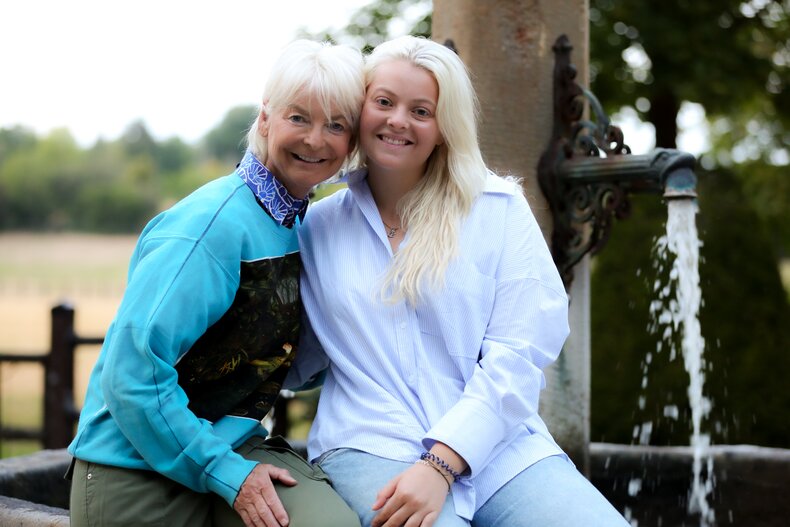

“Tolerance is respect, acceptance, and appreciation of the rich diversity of our world’s cultures, our forms of expression, and ways of being human,” proclaimed UNESCO in its 1995 Declaration of Principles on Tolerance.
This profound statement invites us, every November, to reflect on tolerance within our societies.

As we recognize the International Day for Tolerance on November 16, we are encouraged to ask questions about our communities, our institutions, and ourselves.
- Are we fostering environments that welcome diversity and difference?
- Are we actively promoting tolerance in our interactions?
Recognizing the human rights and fundamental freedoms of others is essential in a world where differences in background, belief, and perspective are natural and essential.
In fact, it is only through tolerance that multicultural, multifaith, and multilingual societies can thrive.

In 1996, the UN General Assembly adopted Resolution 51/95, officially establishing November 16 as the International Day for Tolerance.
This action reinforced the principles outlined by UNESCO's Member States a year earlier in the Declaration of Principles on Tolerance.
This declaration highlighted tolerance as a cornerstone of peace and human progress, recognizing that tolerance is not merely an ethical duty but also a social and political necessity.
As globalization intensifies, societies are increasingly interwoven, bringing both opportunities and challenges.
Differences in language, religion, customs, and political beliefs can lead to misunderstandings or conflicts; hence, international efforts like the International Day for Tolerance aim to highlight the need for understanding and respect in an interconnected world.

Our world is becoming increasingly diverse. According to the United Nations, over 281 million people live outside their country of origin, a record-high number in history.
In the European Union alone, approximately 11,5% of the population is foreign-born, contributing to rich cultural diversity but also creating challenges around integration, inclusion, and understanding.
However, with this diversity come challenges. Regions with high levels of religious and cultural diversity, including parts of Europe, Asia, and Africa, report ongoing issues of intolerance, often resulting in heightened tensions and, at times, violence.
Moreover, recent statistics show that hate crimes based on race, ethnicity, and religion have surged in recent years, pointing to a concerning trend of intolerance fueled by misinformation, prejudice, and fear of the “other.”

Modern issues such as migration, inequality, and misinformation have complicated the global tolerance landscape.
Climate change, for example, has led to mass migrations, creating new challenges in regions that are already grappling with economic or political issues.
In 2022, the UN reported that over 108 million people were forcibly displaced globally due to persecution, conflict, or climate disasters.
Host communities may struggle to accept these newcomers, leading to tensions or, in extreme cases, xenophobia.

The rise of online misinformation has also strained tolerance in many societies.
Social media platforms have become a double-edged sword: while they allow for cross-cultural exchange and understanding, they also amplify biases and facilitate the spread of harmful stereotypes.
The rapid spread of misinformation fuels prejudice and can exacerbate divisions within communities, making the role of tolerance in the digital age more crucial than ever.

Promoting tolerance requires active engagement, particularly in education systems worldwide.
Education that teaches empathy, respect, and intercultural understanding can lay a solid foundation for a more tolerant world.
A UNESCO report on global education found that schools prioritizing inclusivity and tolerance produce students who are more resilient to prejudice and more prepared to participate in peaceful, multicultural societies.
Furthermore, including curriculum that emphasizes the values of diversity and coexistence encourages students to become champions of tolerance in their own communities.

The International Day for Tolerance reminds us that fostering tolerance is a shared responsibility.
Whether through government policies that promote inclusion, community initiatives that support marginalized groups, or individual actions that counteract discrimination, we all play a part in building more tolerant societies.
Organizations, governments, and individuals worldwide must continue working to create a culture where differences are celebrated rather than feared.
In a world marked by diversity, fostering tolerance is not only essential for peace but also for the survival and growth of our societies.
By embracing diversity and promoting understanding, we contribute to a world where all people can coexist, recognizing the inherent value in every culture, belief, and identity.
Yours
sincerely

